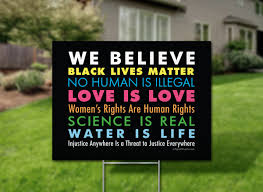
Thanksgiving can change our lives! I’m talking about more than a day on our calendar, of course, but I’m referring to a heart posture which can revolutionize how we see the world – and how we see our own circumstances.
God is good. That’s a given. God deserves our thanks. That’s also a given. But, as quickly as I can acknowledge both of those things to be true, I’m also able to identify my own reluctance to thank God as I should. I’m admitting that sad fact right here, and right now, on Thanksgiving Eve.
American Greetings did some market research and discovered that most Americans – three out of five – aren’t even interested in thinking about thanksgiving. They’re all for the turkey and dressing, and maybe the football, but would rather take a pass when it comes to inventorying their manifold blessings. In short, we’re more ungrateful than we might have imagined. My suspicion is that it’s all too easy for Christ followers to fall right in line when it comes to this epidemic of ingratitude. I need to hear my grandmother’s voice again: “Count your blessings.”
Here’s a game-changer, friends (First Thessalonians 5:16-18): Rejoice always, pray without ceasing, give thanks in all circumstances; for this is the will of God in Christ Jesus for you.
“Rejoice always?” Why would God command me to do something that He knows I won’t – and in fact can’t – do? I mean, for goodness’ sake, I’m likely to pout or make a snarky remark (at least in my head) before I finish this blog posting. Here’s why God raises the bar, I think: He wants His standards to prove me a sinner so that I’ll never forget my need for a Savior!
So I can’t let my weakness drive me to despair – though it has the potential to do so if I don’t rehearse the gospel on a regular basis – but I must lean into Jesus for the spirit of rejoicing that I can’t manufacture on my own. My sanctification really is, at its core, Christ’s life lived in and through me (and many days in spite of me). Imagine this: I can look to my Lord to produce the rejoicing in me when my joy-tank has run dry. How marvelous! The same is true when I’ve lost my will to pray. And the same must be true when my thanksgiving meter isn’t pointing in a positive direction.
Here’s why it matters: thanksgiving changes everything! But here’s the deal: I don’t have to feel thankful before I can start thanking God. In fact, sometimes I have to thank God before I’ll have any “thankful” feelings at all. When I do express what I know to be true about God’s goodness – and just start thanking Him despite my cruddy feelings (or lack thereof), God never fails to begin to give me glimpses of His glory sprinkled against the backdrop of whatever situation seems to be dragging me down.
I need that right now. Do you? Let me give you an example from my little corner of the world: I’m upset about government overreach, and the perceived loss of our liberties. Is it as bad as I think it is? Probably not, since I’m the emotional creature that I am, but this COVID-19 craziness can feel downright suffocating if I stay too long away from the fount of living water! And that’s just one of multiple concerns on my current radar screen. I’ll bet you have a panoramic radar screen too. My point is: there are lots of reasons why thanksgiving might escape us this year – right now – if we don’t purpose to seek the Lord for the work of grace in us that each one of us so desperately needs.
Though I don’t always do it perfectly, friends, I’m telling you that there’s tremendous power in what I’m sharing with you today. Thanksgiving is more than a duty. It’s more than a list of blessings. It’s more than a holiday. Thanksgiving is profound spiritual victory in your life and mine! In an age of ingratitude and self-absorption and practical atheism, genuine thanksgiving smashes our idols, renews our zeal for Christ, and restores our sagging souls. I would submit to you that Satan’s strongholds in our lives are diminished when we look up to God with a thankful heart, because real thankfulness – especially during a season of difficulty like the one we’re in now – is a sacrificial attitude which is simply and sweetly pleasing to our gracious Lord.
And He is so worth it. So, so worth it.
We all know that the trappings of the holiday won’t look the same this year. Most of us, by and large, have accepted that by now. Perhaps, though, the thanksgiving which we’ll experience in 2020 will be a taste of something even better.
Pastor Charles

 This is not meant as a politically partisan post, on any level, but it is a post about my concerns regarding our American republic. My prayer is that my words will be “heard” in the spirit of grace with which I will attempt to communicate them.
This is not meant as a politically partisan post, on any level, but it is a post about my concerns regarding our American republic. My prayer is that my words will be “heard” in the spirit of grace with which I will attempt to communicate them.
 “Blessed are the peacemakers, for they shall be called the children of God.”
“Blessed are the peacemakers, for they shall be called the children of God.” We are blessed to live in a nation where freedom of speech, religious freedom, and the free exercise of religion are protected. Truly blessed! Under such extraordinarily privileged circumstances, I believe that the exercise of our right to vote is part of our Christian calling to live as salt and light in this world (Matthew 5:13-16).
We are blessed to live in a nation where freedom of speech, religious freedom, and the free exercise of religion are protected. Truly blessed! Under such extraordinarily privileged circumstances, I believe that the exercise of our right to vote is part of our Christian calling to live as salt and light in this world (Matthew 5:13-16). In my personal devotions this morning, I was reading through First Corinthians 15, and specifically that somewhat confusing section where the Apostle Paul recounts: “I fought with beasts at Ephesus” (Verse 32). The Greek word for “beast” or “wild animal” in that context is therion – and it nearly always describes a literal creature. I’ll cite a few examples: the wild animals surrounding Jesus during His wilderness temptation (Mark 1:13), the animals in Peter’s vision (Acts 10:12), and the poisonous snake that bit Paul on the isle of Malta (Acts 28:4). I suppose it’s possible that Paul fought literal animals in Ephesus – in some kind of public games, bullfighting, or other arena setting (which did happen in Ephesus) – but I think that’s highly improbable for a couple of reasons. First, Paul was a Roman citizen who would not likely have been compelled to do such a thing. Second, we don’t see in Acts 19 any evidence that Paul was arrested at Ephesus – and certainly there’s no mention there of any arena fight of any kind.
In my personal devotions this morning, I was reading through First Corinthians 15, and specifically that somewhat confusing section where the Apostle Paul recounts: “I fought with beasts at Ephesus” (Verse 32). The Greek word for “beast” or “wild animal” in that context is therion – and it nearly always describes a literal creature. I’ll cite a few examples: the wild animals surrounding Jesus during His wilderness temptation (Mark 1:13), the animals in Peter’s vision (Acts 10:12), and the poisonous snake that bit Paul on the isle of Malta (Acts 28:4). I suppose it’s possible that Paul fought literal animals in Ephesus – in some kind of public games, bullfighting, or other arena setting (which did happen in Ephesus) – but I think that’s highly improbable for a couple of reasons. First, Paul was a Roman citizen who would not likely have been compelled to do such a thing. Second, we don’t see in Acts 19 any evidence that Paul was arrested at Ephesus – and certainly there’s no mention there of any arena fight of any kind.

 Last year, Weber Shandwick and Powell Tate conducted a formal survey, the results of which include the following: 68% of Americans consider incivility to be a major problem in our nation. Just a hunch, friends, but I’m thinking that number may have edged up a tad in the last few months. Perhaps even in the last few minutes.
Last year, Weber Shandwick and Powell Tate conducted a formal survey, the results of which include the following: 68% of Americans consider incivility to be a major problem in our nation. Just a hunch, friends, but I’m thinking that number may have edged up a tad in the last few months. Perhaps even in the last few minutes. From the Hebrew language of ancient Genesis, we learn that Adam was created and formed by God. “From the dust of the ground” the Lord of heaven and earth created our first parent, much like a potter creates and fashions something uniquely gorgeous out of a lump of common clay. In regard to human nature, the Bible captures and expresses this vivid imagery more than once. Even the patriarch Abraham would later understand that we, as human beings created in God’s own image, must trace our ultimate origins to the dirt of the ground (Genesis 18:27).
From the Hebrew language of ancient Genesis, we learn that Adam was created and formed by God. “From the dust of the ground” the Lord of heaven and earth created our first parent, much like a potter creates and fashions something uniquely gorgeous out of a lump of common clay. In regard to human nature, the Bible captures and expresses this vivid imagery more than once. Even the patriarch Abraham would later understand that we, as human beings created in God’s own image, must trace our ultimate origins to the dirt of the ground (Genesis 18:27).
Recent Comments